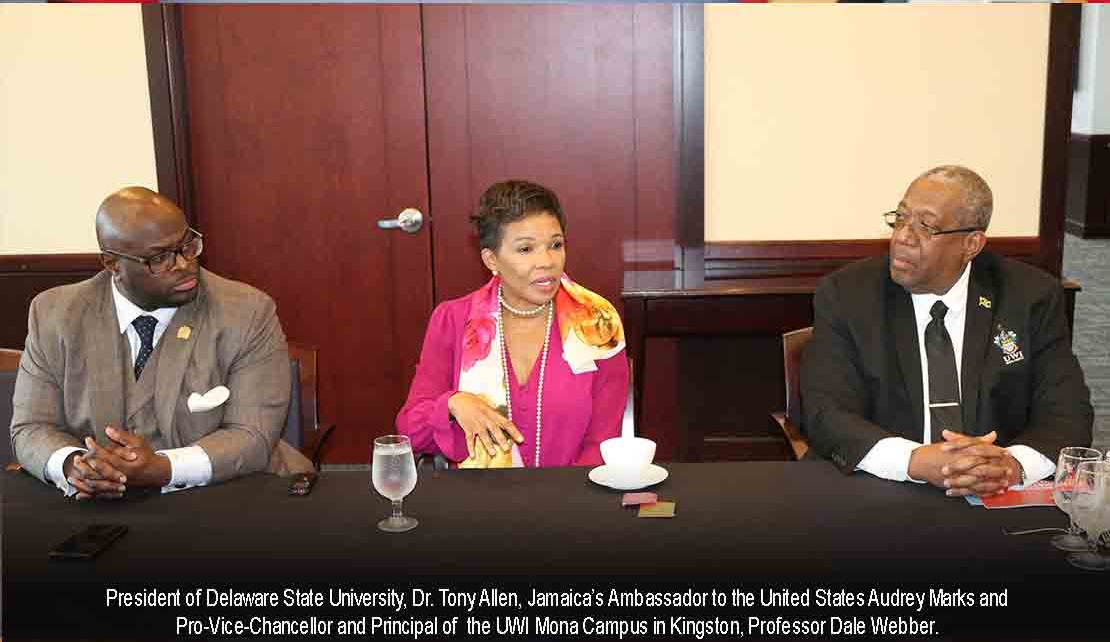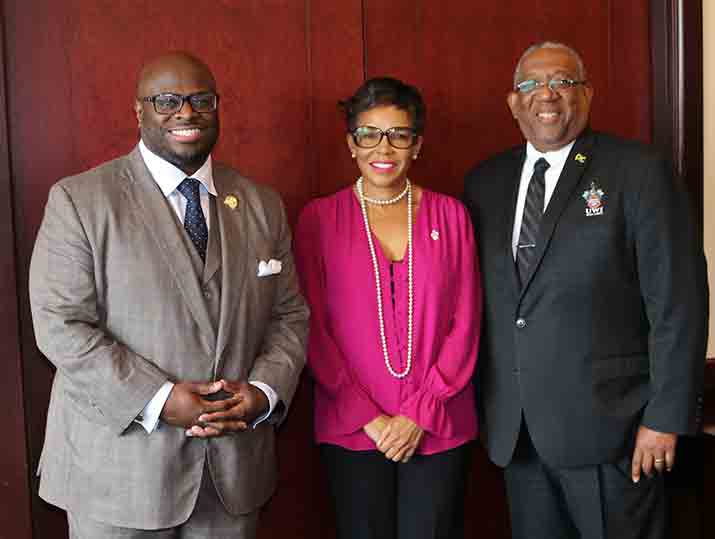JAMAICA | UWI to collaborate With USA’s Historically Black Colleges and Universities

WASHINGTON DC, May 28, 2022 - The University of the West Indies and the group of Historically Black Universities and Colleges of the United States are now in discussions regarding the creation of opportunities for Jamaican Students attending the UWI to collaborate with a number of HBCU Institutions in the US.
This is in relation to the creation of exchange programmes and scholarships for students at UWI Mona and students attending HBCUs in pursuit of academic excellence.
Particular focus is being placed on a group of Historically Black Universities and Colleges (HBCUs) in the United States to start the process of creating opportunities for Jamaican Students attending the UWI to incorporate a study aboard experience in the USA.
This will entail the creation of exchange programmes for students at UWI Mona and students attending HBCUs to have reciprocal stays of a semester, a year or 2 years at the participating universities while completing their degree programmes.
The framework for the collaboration was laid following a series of meetings organized by Jamaica’s Ambassador to the United States Audrey Marks, between the University of the West Indies and several HBCU institutions in Washington DC, Maryland and Delaware in the USA.
Pro-Vice-Chancellor and Principal of the UWI Mona Campus in Kingston, Professor Dale Webber, along with UWI Campus Registrar Dr. Donavon Stanbury, and bursar Mrs. Catherine Park-Thwaites, have been in the United States meeting with top level officials of the HBSU’s in since last Monday, to work out the details of the proposed collaboration.
Chair of US President Joe Biden’s Board of Advisors on Historically Black Colleges and Universities, Dr. Tony Allen, said “what's clear to me particularly for Black Students, whether they are in Jamaica or the United States, is that they have the same opportunity for success as we relate to one another and we build capacity for them to see live opportunities in front of them.

“To be able to connect the broader HBCU to what is effectively the sixth region of the African Diaspora, is important to us. That is why relationships like the one we are building with the UWI here with Delaware State will be equally valuable and if done well will serve as a model for other HBCUs around the country.”
“The opportunities being offered are to do joint degree programmes, where you start a degree programme at Delaware State and you can complete that programme at the UWI. Our University has done similar programmes with other universities outside of the US and implementing this with the UWI would be a win-win situation,” Dr. Allen said.
The Delaware State University President said “one of the programs that would take off with the UWI would be the nursing programme as both countries could benefit from this.”
He said he was confident that in short order his international affairs department will be visiting Jamaica early next month with a view to finalizing the discussion which will result in the signing of an MOU.
He described the meeting with the Jamaican delegation and the Ambassador as very fruitful and its a strong beginning that will be very prosperous and beneficial to both universities.
Ambassador Marks said she was very pleased that the HBCUs had accepted her invitation to have a direct conversation with the UWI, given the important role that HBCUs continue to play in educating members of the Jamaican Diaspora in the United States.
We really strongly believe that we have so much more similarities than differences between ihe University of the West Indies and the HBCUsand we have not fully organized ourselves to utilize these similarities to build strengths.
We have been doing ad hoc programmes, and over the last 90 years we have had Jamaicans going to Howard for example, and a couple years ago I realized that we have hot had an established alumni association , so I met with the president, we formed one, and now that association which has members going back for the past fifty years, has become an important source of funding for current students.
“It is important that African American students can travel to Jamaica or the Caribbean, not only to get a degree but to broaden their education experience and world view, where they are not constrained by being a minority.
“Once people have had the exposure and see that they can be anything they want, they are seeing themselves in a larger context where it changes their mind-set to want to do much more.
“For me it's very important to see the UWI begin to have exchanges where we give the young people an opportunity to go abroad for even a semester or a year and get that different experience; they come back transformed not only for themselves, but also for their families, their communities and the wider country,” Ambassador Marks observed.
HBCUs are higher education institutions within the United States that were originally established with a mandate of providing higher education opportunities to African-American students. This was done in the 19th Century in an effort to offset the historical injustices of slavery and later segregation and their resulting impact on education within the Black community.
The Biden-Harris Administration has committed more than $5.8 billion in support for HBCUs through the American Rescue Plan, grant funding, and by forgiving the capital improvement debt of many of these institutions.
There are currently a little over 100 HBCUs in the United states, representing approximately 3% of US higher-education institutions. These institutions are concentrated around the south-eastern United States. While predominantly catering to Black/African-American students, non-Black students made up approximately 24% of enrollment at HBCUs.
-30-
